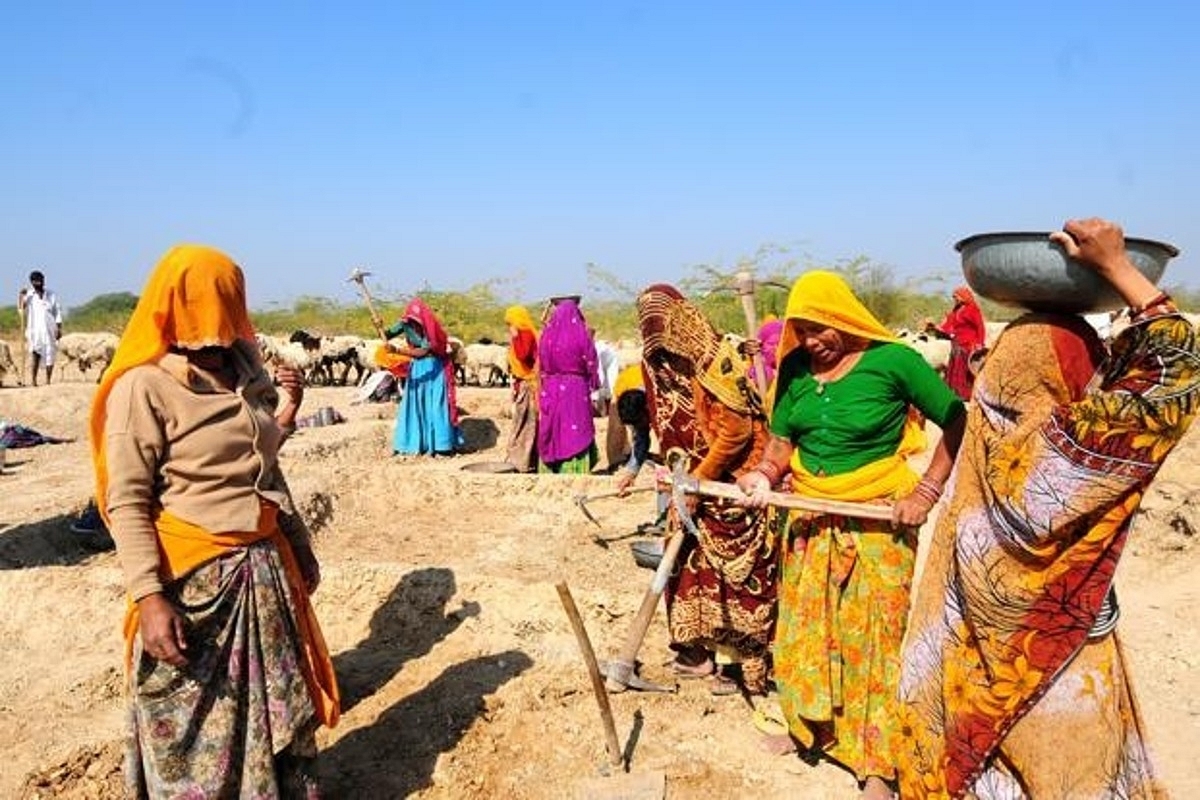Economics
After Covid Pandemic, MGNREGS Sees Continuous Decline In Number Of Families Seeking Work: Report

Representative Image
The Mahatma Gandhi National Rural Employment Guarantee Scheme (MGNREGS) has seen a decline in households availing benefits of the programme after the Covid-19 pandemic.
In the fiscal year 2022-23, 6.19 crore households availed of the programme, which is lower than the 7.25 crore from the previous fiscal and 7.55 crore in 2020-21, according to official data cited by The Indian Express.
Meanwhile, the demand for work under NREGS still remains high than pre-Covid levels, when the number of families who availed of the scheme stood at 5.48 crore in 2019-20 and 5.27 crore in 2018-19 respectively.
NREGS, which was launched in 2006-07 across 200 of the most-backward rural districts in India, was expanded in 2007-08 to 130 additional districts, and finally extended to the entire country from 2008-09.
The scheme saw a spike in demand for work during 2020-21 when a record 7.55-crore rural families availed of its benefit in the wake of the Covid-19 pandemic in 2020-2021.
The scheme acted as a safety net for the migrants returning to their villages during the Covid-19 lockdown period.
However, since then, the number of beneficiaries has decreased, with 7.25 crore in 2021-22 and 6.19 crore in 2022-23.
Despite the decline, NREGS has played a crucial role in providing livelihoods to rural families in India, particularly during crisis situations.
The decline in monthly demand for MGNREGS work was attributed by the Economic Survey 2022-23 to the normalization of the rural economy due to strong agricultural growth and Covid recovery leading to better employment opportunities.
The NREGA guarantees 100-day wage employment in a financial year to every rural household whose adult members volunteer to do unskilled manual work.
However, the data has shown that the average days of employment per household have decreased to 47.84 days in 2022-23 from 50.07 days in 2021-22, and 51.52 days in 2020-21. The figure for 2022-23 is even lower than the pre-pandemic levels of 48.4 days recorded in 2019-20.
Further, the number of families that completed 100-day wage employment under NREGS in 2022-23 was only 36.01 lakh, the lowest in the last five years.
Meanwhile, activists are reportedly blaming the introduction of mandatory attendance through the National Mobile Monitoring System App (NMMS), Aadhaar Based Payment System, and cut in the budget for the decrease in the number of families benefiting from NREGS.
Introducing ElectionsHQ + 50 Ground Reports Project
The 2024 elections might seem easy to guess, but there are some important questions that shouldn't be missed.
Do freebies still sway voters? Do people prioritise infrastructure when voting? How will Punjab vote?
The answers to these questions provide great insights into where we, as a country, are headed in the years to come.
Swarajya is starting a project with an aim to do 50 solid ground stories and a smart commentary service on WhatsApp, a one-of-a-kind. We'd love your support during this election season.
Click below to contribute.
Latest